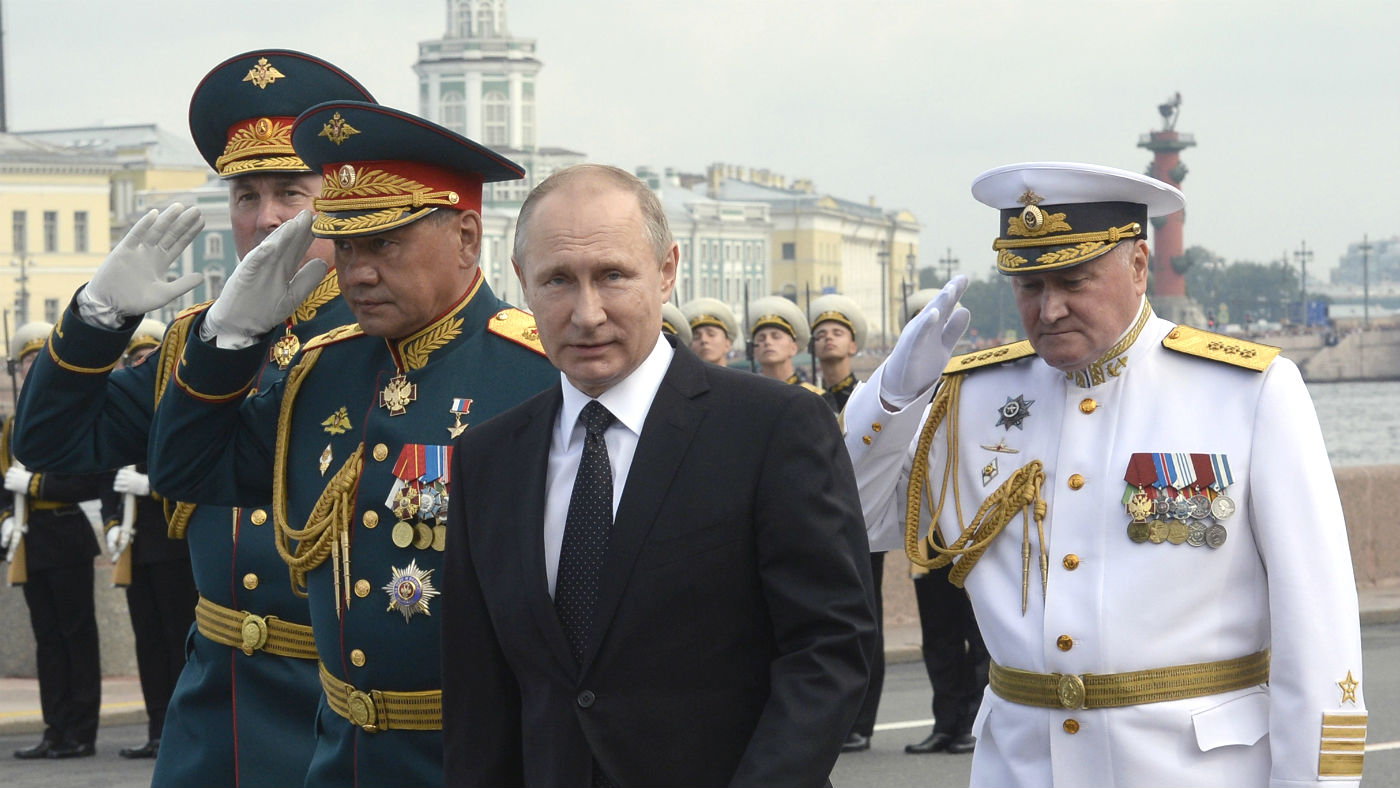Will Vladimir Putin reign forever?
Russian President confirms he will seek re-election in 2018, extending his rule into third decade

A free daily email with the biggest news stories of the day – and the best features from TheWeek.com
You are now subscribed
Your newsletter sign-up was successful
Russian President Vladimir Putin has surprised no one by announcing his intention to stand for re-election in next year’s presidential election.
Having repeatedly dodged questions in recent weeks about his intentions, he made the announcement at a meeting with workers of the GAZ factory in Nizny Novgorod, to rapturous applause.
Opinion polls show the former KGB-boss is a shoo-in to win a fourth term as president, with his support among voters as high as 70% nationwide.
The Week
Escape your echo chamber. Get the facts behind the news, plus analysis from multiple perspectives.

Sign up for The Week's Free Newsletters
From our morning news briefing to a weekly Good News Newsletter, get the best of The Week delivered directly to your inbox.
From our morning news briefing to a weekly Good News Newsletter, get the best of The Week delivered directly to your inbox.
The decision this week to ban Russia from taking part in the Winter Olympics “is likely to make support for him even stronger”, says Reuters, “by uniting voters around his message: the world is against us”.
With ties between the Kremlin and the West at their weakest for years, the International Olympic Committee’s decision plays right into Putin’s hands - at least as far as his domestic audience is concerned.
With an iron grip on the country’s state-run media and the absence of any serious presidential challenger, “his toughest task will be to mobilise an electorate showing signs of apathy to ensure a high turnout which in the tightly-controlled limits of the Russian political system is seen to confer legitimacy”, says Reuters.
Putin has been in power, either as president or prime minister, since 2000 and if he wins a fourth term he will be eligible to serve another six years until 2024, making him the longest-serving Russian ruler since Joseph Stalin.
A free daily email with the biggest news stories of the day – and the best features from TheWeek.com
While next year’s result is not in doubt, there are many who question what will happen when Putin’s final term runs out.
By then, he will be 72 and under Russia’s constitution barred from seeking another term as president. In 2008 he faced a similar obstacle but swapped jobs with the Prime Minister, his protege Dmitry Medvedev, for a single term.
His decision in 2012 to stand again for the presidency was met with a unexpected backlash and prompted mass protests and claims he was turning the country into a dictatorship.
Having been in power for over a quarter of a century, analysts say, Putin may decide not to run again in 2024 and instead seek to anoint a successor, while retaining a position of influence.
The problem, says CNBC, is that there is no obvious successor, and “the lack of a clear succession plan, and likely jockeying for position among Russian elites for dominance in the post-Putin era, is becoming the biggest political risk”.
Olga Kryshtanovskaya, a sociologist at the Russian Academy of Sciences who studies the Russian ruling elite, said the real threat for Putin could start once his final term begins in May.
“It will be a dangerous period,” she told Bloomberg. “Putin will turn into a lame duck” and the elite could splinter as opposing camps start coalescing around potential successors.
-
 Regent Hong Kong: a tranquil haven with a prime waterfront spot
Regent Hong Kong: a tranquil haven with a prime waterfront spotThe Week Recommends The trendy hotel recently underwent an extensive two-year revamp
-
 The problem with diagnosing profound autism
The problem with diagnosing profound autismThe Explainer Experts are reconsidering the idea of autism as a spectrum, which could impact diagnoses and policy making for the condition
-
 What to know before filing your own taxes for the first time
What to know before filing your own taxes for the first timethe explainer Tackle this financial milestone with confidence
-
 What happens now that the US-Russia nuclear treaty is expiring?
What happens now that the US-Russia nuclear treaty is expiring?TODAY’S BIG QUESTION Weapons experts worry that the end of the New START treaty marks the beginning of a 21st-century atomic arms race
-
 Epstein files topple law CEO, roil UK government
Epstein files topple law CEO, roil UK governmentSpeed Read Peter Mandelson, Britain’s former ambassador to the US, is caught up in the scandal
-
 Iran and US prepare to meet after skirmishes
Iran and US prepare to meet after skirmishesSpeed Read The incident comes amid heightened tensions in the Middle East
-
 Israel retrieves final hostage’s body from Gaza
Israel retrieves final hostage’s body from GazaSpeed Read The 24-year-old police officer was killed during the initial Hamas attack
-
 China’s Xi targets top general in growing purge
China’s Xi targets top general in growing purgeSpeed Read Zhang Youxia is being investigated over ‘grave violations’ of the law
-
 Ukraine, US and Russia: do rare trilateral talks mean peace is possible?
Ukraine, US and Russia: do rare trilateral talks mean peace is possible?Rush to meet signals potential agreement but scepticism of Russian motives remain
-
 Panama and Canada are negotiating over a crucial copper mine
Panama and Canada are negotiating over a crucial copper mineIn the Spotlight Panama is set to make a final decision on the mine this summer
-
 Why Greenland’s natural resources are nearly impossible to mine
Why Greenland’s natural resources are nearly impossible to mineThe Explainer The country’s natural landscape makes the task extremely difficult